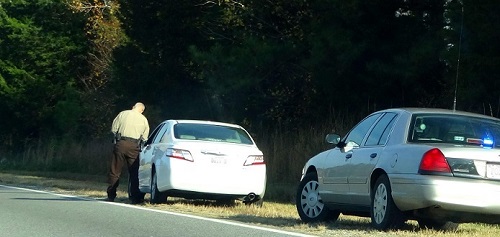 It’s easy to get confused by the evolving state of Minnesota DWI case law. For the last three years, it has been something of a moving target for judges and lawyers. The most recent decision, last week’s State v. Trahan, adds yet more wrinkles to the wash. Briefly, the Minnesota Court of Appeals held warrantless blood tests to be unconstitutional, as are criminal charges based on one’s refusal of said blood test. Trahan is best analyzed in perspective of other groundbreaking DWI case law of recent years:
It’s easy to get confused by the evolving state of Minnesota DWI case law. For the last three years, it has been something of a moving target for judges and lawyers. The most recent decision, last week’s State v. Trahan, adds yet more wrinkles to the wash. Briefly, the Minnesota Court of Appeals held warrantless blood tests to be unconstitutional, as are criminal charges based on one’s refusal of said blood test. Trahan is best analyzed in perspective of other groundbreaking DWI case law of recent years:
Missouri v. McNeely (2013). The U.S. Supreme Court held a warrant is needed before drawing blood from DWI suspects except in certain emergencies. This decision trumped the prior Minnesota standard established in the case of State v. Shriner, which held that dissipation of blood alcohol creates the exigent circumstance to justify a warrantless blood draw (provided that officers have probable cause to believe that the defendant committed criminal vehicular homicide or operation.) A groundbreaking case, but the analysis was only beginning for Minnesota.
State v. Brooks (2013). Following on the heels of McNeely, the Minnesota Supreme Court concluded that blood and urine samples taken from the defendant without a warrant were constitutional, because he “consented” to the tests at issue (despite being told that refusal was a criminal offense.) The Court concluded that in light of Brook’s actions (and that his lawyer was advising him from the passenger seat), plus Minnesota’s implied consent law (anyone who drives a motor vehicle “consents” to a chemical test when certain conditions are met), Brooks had “consented” to the searches at issue.
State v. Bernard (2015). The Minnesota Court of Appeals upheld warrantless breath tests as permissible as a search incident to a valid arrest. It also upheld the constitutionality of Minnesota’s implied consent statute as applied to breath tests, in cases where the officer requesting the test would have had grounds to obtain a valid search warrant requiring the driver to submit to testing. The Court did not analyze the constitutionality of warrantless blood tests, however, basically setting the stage for Trahan.
State v. Trahan (2015). The Minnesota Court of Appeals then held that the search-incident-to-arrest exception did not justify a warrantless blood test, as a dissipating blood alcohol level was not an exigent circumstance. Thus, a warrantless blood test would constitute an unreasonable search. The Court also held that the implied consent statute criminalizing test refusal was not narrowly tailored and thus violated defendant’s right to due process. The invasive nature of testing blood rather than breath was a distinction from Bernard.
This represents some quickly-changing case law for legal professionals to stay on top of (not to mention for non-professionals who might find themselves pulled over). Use the links provided to brush up on the analyses of these cases. Then stay tuned, as the Minnesota Supreme Court is likely to weigh in on the issues before long.